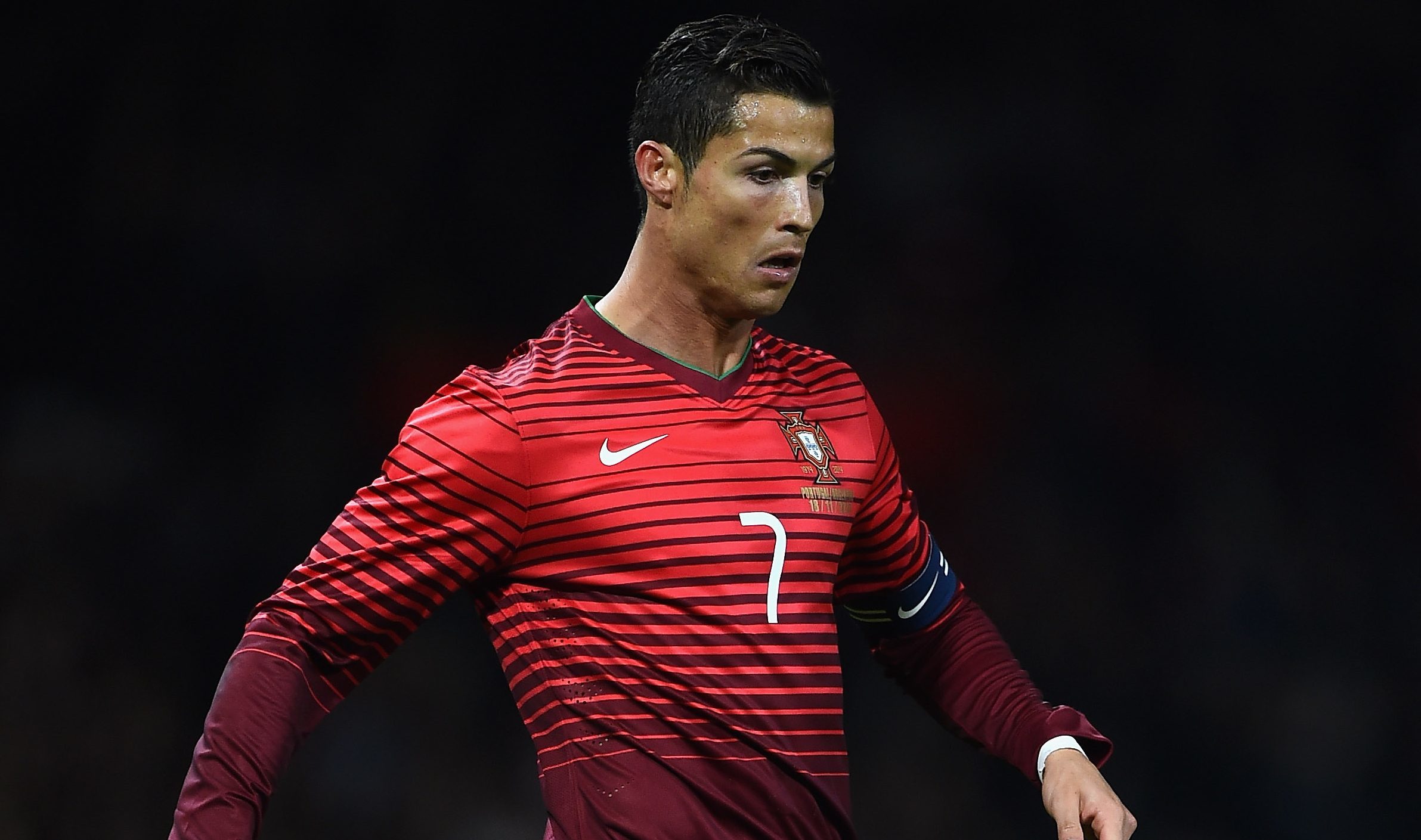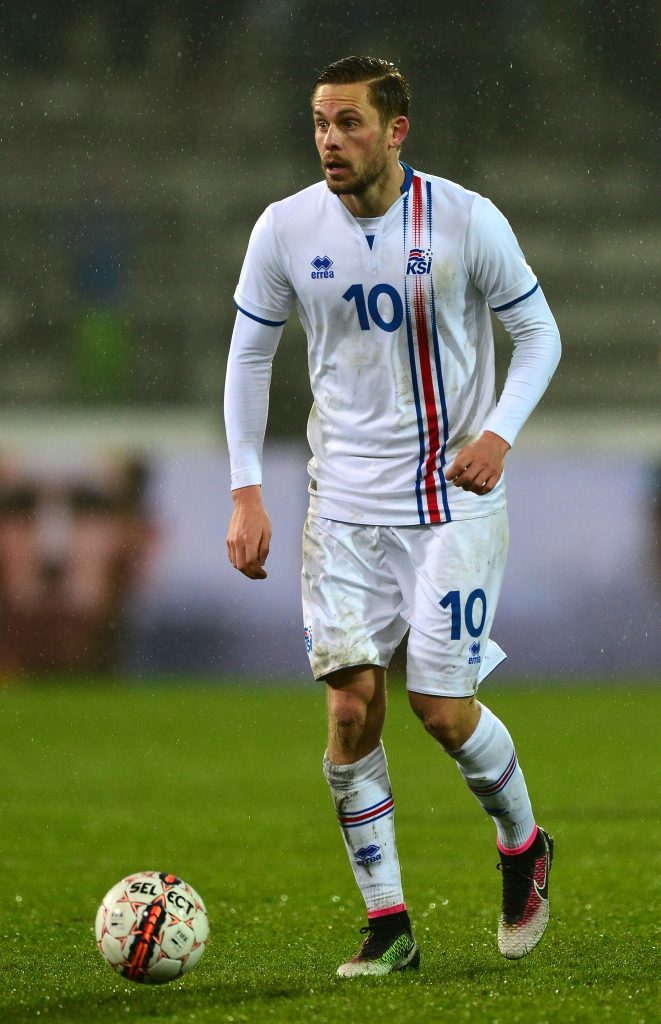
Portugal
How they qualified: 1st in Group I; P8 W7 L1 21pts.
Albania (h) 0-1; Denmark (a) 0-1; Armenia (h) 1-0; Serbia (h) 2-1; Armenia (a) 2-3; Albania (a) 0-1; Denmark (h) 1-0; Serbia (a) 1-2.
Coach: Fernando Santos
TOOK the reins after the opening defeat by Albania in qualifying and guided Portugal to the Finals with a series of narrow wins.
Previously in charge of Greece, Santos (right) took them to the quarter-finals of Euro 2012 and the last 16 at the World Cup, so the Portuguese will demand at least something similar.
A manager for nearly 30 years, his career has flitted between Portugal and Greece, and he has managed Benfica, Porto and Sporting Lisbon in his homeland. He’s nicknamed ‘the Engineer’ after gaining a degree in the subject during his playing days.
Star Player: Cristiano Ronaldo
IT is easy to pick out Cristiano Ronaldo. For years now, he has battled with Lionel Messi for the tile of Best Player on the Planet.
How he fares in France will add to that debate. But the Portuguese player making all the headlines right now is Renato Sanches.
The teenager began the season in Benfica’s B team, but has made astonishing progress. He broke into the first-team in November and became a mainstay as the Eagles won the title and reached the Champions League quarter-finals.
Such was Sanches’ progress, he has moved to Bayern Munich in a deal that could reach £60 million.
ANALYSIS:
AS ever, focus on Portugal means focus on Cristiano Ronaldo. This will be the Real Madrid superstar’s seventh tourney and he has still come no closer than in his first one when as hosts, Portugal lost in the Final to surprise winners Greece.
Since then there has been a steady decline and they even failed to get out of their group at the World Cup in Brazil.
Two years on, Ronaldo remains the team’s talisman, captain and most-likely goalscorer and his team-mates will look to him at every opportunity. It’s no surprise considering he has scored more goals than the rest of the squad combined.
Portugal will likely line up in a 4-3-3 formation, similar to the one favoured by Madrid, with Ronaldo expected to play on the left with licence to drift in, as he does so effectively at club level.
There will be plenty of familiar figures from previous tournaments such as Pepe, Nani and Joao Moutinho, but they will be joined by some exciting new talent.
Portugal were runners-up in last summer’s European Under-21 Championship, and the best players from that team, William Carvalho and Joao Mario of Sporting Lisbon, have graduated to the senior side.
Along with countries of a similar size, like Belgium, it’s more realistic to think of Portugal winning the Euros than a World Cup and they will expect a strong showing here.
They are in, by far, the weakest group and anything less than the quarter-finals would be a disappointment.
Iceland
How they qualified: 2nd in Group A. P10 W6 D2 L2 20pts.
Turkey (h) 3-0; Latvia (a) 0-3; Holland (h) 2-0; Czech Republic (a) 2-1; Kazakhstan (a) 0-3; Czech Republic (h) 2-1; Holland (a) 0-1; Kazakhstan (h) 0-0; Latvia (h) 2-2; Turkey (a) 1-0.
Coach: Lars Lagerback/Heimir Hallgrimsson
This will be a seventh tournament for Lars Lagerback, having managed his native Sweden at five consecutive finals from 2000 to 2008, and then taken Nigeria to the 2010 World Cup.
He took over as Iceland coach in 2011 and was joined at the helm by Heimir Hallgrimsson. This will be Lagerback’s last hurrah as he retires after the Finals with Hallgrimsson taking sole charge.
Star Player: Gylfi Sigurdsson
Former Chelsea and Barcelona forward Eidur Gudjohnsen would win the accolade as Iceland’s best-ever player and is in the squad for France. But, at 37, his best days are well behind him.
So the best of their ‘Golden Generation’ is Swansea’s attacking midfielder Gylfi Sigurdsson. En route to France, he scored both goals in the 2-0 home win over Holland and then in the 1-0 victory in Amsterdam, as the Icelanders prepare for the Euros and the Dutch have the summer off.
ANALYSIS:
Having achieved the impossible to get here, Iceland will believe there is no reason why they can’t cause a further surprise.
Austria
How they qualified: 1st in Group G; P10 W9 D1 28pts.
Sweden (h) 1-1; Moldova (a) 1-2; Montenegro (h) 1-0; Russia (h) 1-0; Liechtenstein (a) 0-5; Russia (a) 0-1; Moldova (h) 1-0; Sweden (a) 1-4; Montenegro (a) 2-3; Liechtenstein (h) 3-0.
Coach: Marcel Koller
SPENT his entire playing career at Grasshoppers Zurich and then managed at home and in the Bundesliga in Germany before he was the less than unanimous choice to be Austrian coach in 2011.
However, the Swiss has won the doubters over by putting together a fine side, which has created a buzz among the fans. He responded to that mood by celebrating qualification for France by marching into the post-match press conference wearing a beret and eating a baguette!
Star Player: David Alaba
STILL only 23, David Alaba has been voted Austria’s Footballer of the Year for the last five years.
The son of a Nigerian father and Filipino mother, Alaba has enjoyed a trophy-laden career at Bayern Munich where he has played both as an adventurous left-back, and this season as a stand-in centre-half.
ANALYSIS:
ONLY England had a better record in qualifying for Euro 2016 than the Austrians. They stormed through as winners of Group G as they reached their highest-ever position of 10th in the FIFA World Rankings.
Coach Marcel Koller has built a team that relies upon a strong defence and uses a target man in 6ft 5in striker Marc Janko, with players like Martin Harnik and Stoke’s Marko Arnautovic encouraged to get up and support Janko as much as they can.
The draw certainly did them a big favour as they are in the weakest of the six groups and should be confident of progressing.
Their first game is against traditional rivals Hungary, with only Uruguay and Argentina having played each other more often in international football.
If they finish second, they’d play the second-placed team in Group B, and that could mean a clash with either England or Wales.
Hungary
How they qualified: 3rd in Group F; P10 W4 D4 L2 16pts
Northern Ireland (h) 1-2; Romania (a) 1-1; Faroe Islands (a) 0-1; Finland (h) 1-0; Greece (h) 0-0; Finland (a) 0-1; Romania (h) 0-0; Northern Ireland (a) 1-1; Faroe Islands (h) 2-1; Greece (a) 4-3.
Play-off: Norway (a) 0-1; (h) 2-1; Won 3-1 on aggregate.
Coach: Bernd Storck
he was the right man in the right place to be able to lead Hungary to Euro 2016. Halfway through the qualifying campaign, previous coach Pal Dardai left to take a club job at Hertha Berlin and Storck was parachuted in.
The German kept the Hungarians in third spot and led them to two victories over Norway in the play-offs.
Star Player: Zoltan Gera
The biggest name to British audiences will be that of Zoltan Gera. He spent 10 years in England divided into two spells at West Brom and one at Fulham between 2004 and 2014.
Now 37, Gera helped Ferencvaros win the Hungarian League for the first time since he left to come to England and he’ll be a key part of the national team in France, nearly 14 years after he won his first cap.
ANALYSIS:
THINK of Hungarian football and your mind wanders back to those glorious 6-3 and 7-1 victories over England in 1953 and ’54.
For football purists, it still remains a tragedy how Ferenc Puskas and Co did not win the World Cup in 1954 when they lost to West Germany in the Final.
Qualifying for Euro 2016 came out of the blue and is the first major finals for the Magyars since the 1986 World Cup.
They benefited from the expansion to 24 teams and the implosion of top seeds Greece in their group to grab an unlikely place in France. And that was in a campaign where they had three managers, with German Bernd Storck the man to get them over the line.
Goalkeeper Gabor Kiraly, once of Crystal Palace and Burnley, and still famously wearing his tracksuit bottoms at 40, will become the oldest player in a European Championships if he starts any of Hungary’s three games.
READ MORE
Group A preview: Hosts France hoping for hat-trick of major wins
Group B preview: Qualification perfection will mean nothing if England fail
Group C preview: No matter what, Northern Ireland’s O’Neill is a legend
Group D preview: Spain can surprise with new approach
Group E preview: Republic of Ireland rely on the Quiet Man and the Raging Bull

Enjoy the convenience of having The Sunday Post delivered as a digital ePaper straight to your smartphone, tablet or computer.
Subscribe for only £5.49 a month and enjoy all the benefits of the printed paper as a digital replica.
Subscribe